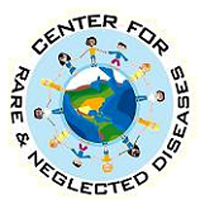
A novel course offering in the University of Notre Dame’s College of Science has enabled a group of undergraduate students to have their research on a rare disease published in a leading scientific journal.
Sixty-four students registered for a class titled “Developing Health Networks in Rare and Neglected Diseases” published their research in the journal PLoS One. Published by the non-profit organization Public Library of Science (PLoS), the journal is an international peer-reviewed, open access online publication.
The students’ research is outlined in a paper titled “Defining Natural History: Assessment of the Ability of College Students to Aid in Characterizing Clinical Progression of Niemann-Pick Disease, Type C.” The research is a collaboration between the students, physician-scientist Forbes D. Porter and nurse practitioner Nicole Yanjanin of the Eunice Kennedy Shriver National Institute of Child Health and Human Development, the National Institutes of Health and the Notre Dame Center for Rare and Neglected Diseases (CRND). The research also is linked to Notre Dame’s Clinical Translational Seminar Series, which allows expert clinicians and researchers as well as other major stakeholders to interact directly with students and the Notre Dame community.
The undergraduate students were expertly trained to assess medical records and became clinical experts in one disease: Niemann Pick Type C disease (NPC). NPC, which affects 1 in 120,000 people, is a fatal, neurodegenerative genetic disorder. Patients present with a broad range of symptoms and the age of onset is variable. Due to these confounding factors, diagnosis can be difficult and delayed by several years.
Disease diagnosis takes quite some time, which means that the families of those with diseases have numerous medical records. These records can be valuable sources of information to define natural history. By defining the natural history, defining a disease becomes possible. The natural history of a disease is also necessary to determine whether experimental therapies are working.
The Notre Dame class became a vehicle to determine whether students can be trained to accurately assess and define rare disease natural histories from patient records. Students first received HIPAA (Health Insurance Portability and Accountability Act) certification and learned the rules governing patient privacy and security. They then learned the clinical disease, its symptoms, how to recognize them and emerging therapies.
Using de-identified records from NPC patients, the students converted clinical notes into digital information: a disease severity scale developed by Porter and Yanjanin and colleagues at NIH. The students correctly quantified major and minor symptoms from the previously assessed medical records. Seven clinical records, randomly selected from a total of 37 previously assessed by Porter and Yanjanin, were also correctly assessed by the students. Student assessment of two new records donated by NPC families directly to the study also revealed that the disease was more severe at later stages.
The results of the study were presented at the National Niemann-Pick Disease Foundation, a major patient services organization. The foundation gave approval for NPC families to contact the CRND and contribute their medical records and further build natural histories. Notre Dame students also will provide families with a two-page medical summary of the patients’ records, which will help new doctors quickly assess the patient history in a standard office visit.
NPC families who are interested in the program can contact Kasturi Halder, director of the CRND at khaldar@nd.edu. An example of a medical summary is available from the Center’s Marisa Truong, mtruong@nd.edu.
Haldar believes that the Notre Dame course’s unique approach can be a model for premedical information. She and CRND faculty and students enrolled in the course met recently with Eva Louise Koehler, former First Lady of the Federal Republic of Germany and patroness of the German Alliance for Rare Diseases (ACHSE) and her husband Horst Koehler, former president of Germany and also a leading advocate for rare diseases, to discuss disseminating the model to other institutions in the European Union and the United States.
More information is available on the Center for Rare and Neglected Diseases website.
Contact: Kasturi Halder,khaldar@nd.edu